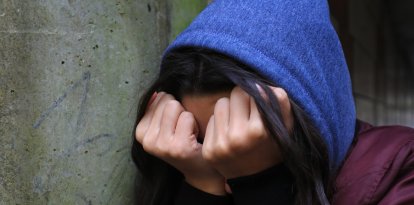Yale University: students with mental health problems sue the institution for "systemic discrimination"
The students claim that the institution's officials "encouraged" them to abandon their studies.

(Archivo / Wikimedia)
A group of students at Yale University are suing the school and its governing body alleging "systemic discrimination against students with mental health disabilities." Moreover, according to the 41-page court filing, Yale encouraged them to abandon their studies in order to avoid any problems they might cause the well-known institution.
Demanda presentada por un grupo de estudiantes a la Universidad de Yale by VozMedia on Scribd
The lawsuit, which the students and the advocacy group Elis for Rachael filed Wednesday in the U.S. District Court in Connecticut, claims that the university's Ivy League treats students with mental health problems in a discriminatory manner and that, in addition, they do not take into account the requests made by these students asking to modify some of the center's policies in order to be able to adapt.
Students recount their traumatic experiences
Alicia Abramson is one of the students who dared to speak out against Yale and narrate what she experienced. According to the class action lawsuit NBC News obtained, she was suffering from depression and the university did not provide her with any help. The student claims she had to drop out of her studies in October 2019, while a sophomore, because Yale does not allow students to partially attend classes. A rule that, according to her, prevented her from taking care of herself, as she did not have enough time to combine her class attendance with her treatment to combat mental health problems.
Hannah Neves is another of those affected. She says school officials "encouraged" her to drop out of school while in her third year just after she ended up in the hospital for an aspirin overdose. The student, who, like Abramson, also suffered from a depression, told in the lawsuit that the dean of her residence, Surjit K. Chandhoke, Yale psychiatrist, Heather Paxton and the director of mental health and counseling, Paul Hoffman paid her a visit while she was recovering and told her that it would "look bad" if she left the university involuntarily.
Neves assures that, in her case, the discrimination went even further: she was not offered any kind of option to be able to resume her studies while undergoing psychological treatment. In addition, the student added that she asked if she could return to campus in fall 2020 and was prevented from doing so due to school policy. She explains that she was involuntarily ejected while still in the hospital and was only allowed to vacate her room accompanied by a Yale police security officer.
A responsibility for the institution
What happened to Nicolette Mantica shares several similarities with what Alicia Abramson and Hannah Neves experienced. In her case, the student claims she was also kicked out while being in the hospital in 2017 after she inflicted "non-suicidal self-injury" on herself. As she explains in the lawsuit, she received a visit from a Yale official who gave her a reason for the institution's decision to expel her: "if anything happened to her it would be a liability to the university."
Yale has already responded to the lawsuit. In a statement sent to Fox News, Yale University spokeswoman Karen Peart said they take students' problems very seriously:
In addition, Peart explained in the same statement that Yale University is implementing "strong and sensible support structures" so that students feel they are in a safe environment and can take their classes without problems:

























